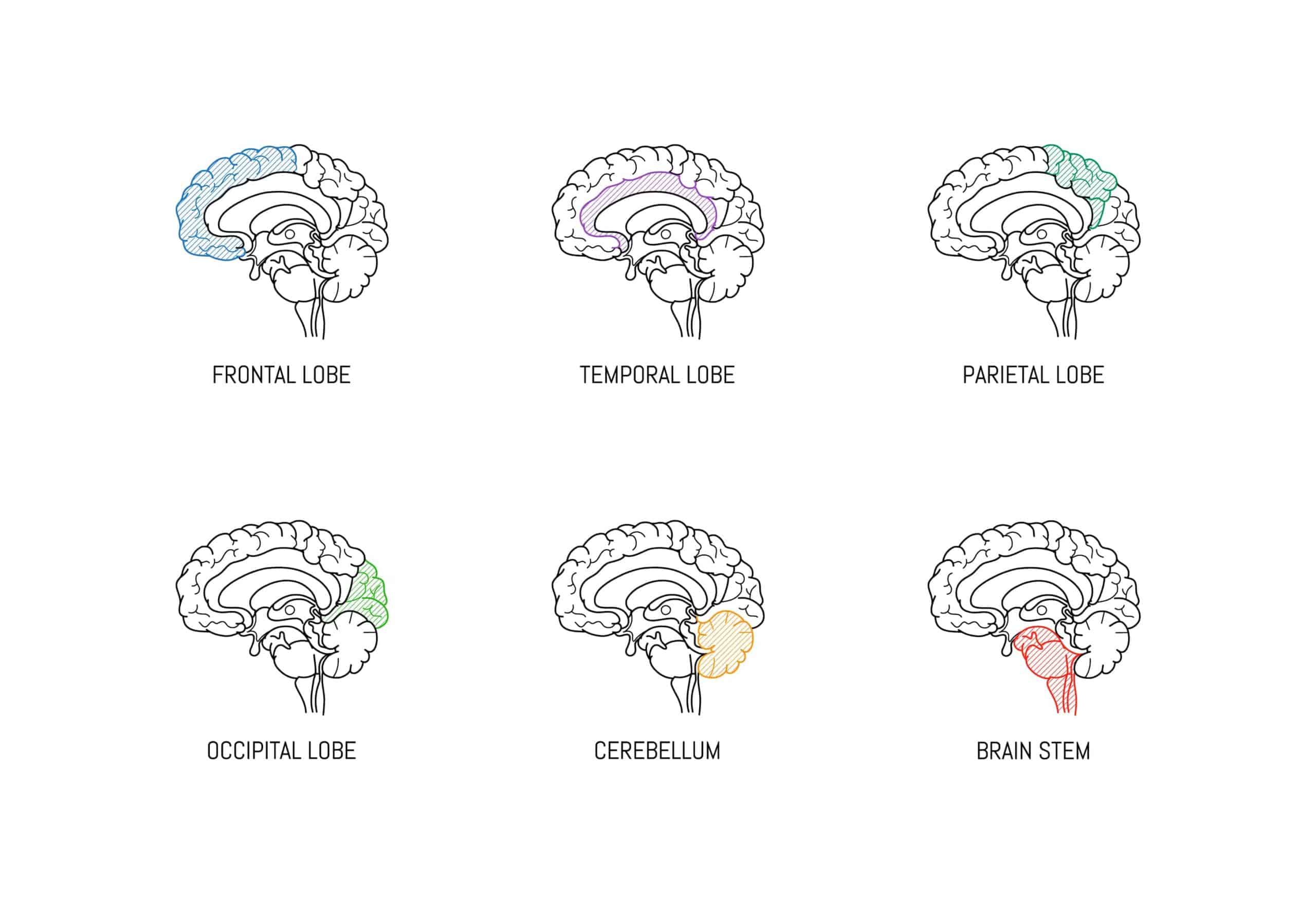
People living with frontotemporal dementia, or FTD, are commonly misdiagnosed with psychiatric disorders or Alzheimer’s disease and other causes of dementia, such as Parkinson’s disease and vascular dementia.
While frontotemporal dementia and Alzheimer’s disease can both cause dementia, there are distinct differences in impacted regions of the brain and, consequently, differences in symptoms. Understanding the differences between frontotemporal dementia and Alzheimer’s disease can help reduce the prevalence of misdiagnosis which may enable early treatment, better health outcomes, and improved quality of life.
Dementia is not a specific disease but rather is an umbrella term used to describe a group of symptoms associated with a decline in memory, reasoning, thinking, or other cognitive functions. There are several causes of dementia, including frontotemporal dementia and Alzheimer’s disease.
The primary difference between frontotemporal dementia and Alzheimer’s disease is the affected brain regions. As the name suggests, frontotemporal dementia primarily impacts the frontal and temporal lobes of the brain. The frontal and temporal lobes are typically associated with personality, behavior, and language, however, they are also important for certain cognitive functions. For example, the frontal lobe plays a key role in higher-level executive functions while the temporal lobe plays a role in processing auditory information and encoding memory.
Alzheimer’s disease on the other hand usually impacts many brain regions throughout the disease continuum. In the early stages, Alzheimer’s disease impacts the entorhinal cortex and hippocampus which are essential for learning and memory. Later in the disease course, Alzheimer’s disease may damage the cerebral cortex which consists of the frontal, parietal, temporal, and occipital lobes and plays a role in memory, speech and language, personality and behavior, sensorimotor planning, spatial recognition, and visual perception and processing, among others.
Because frontotemporal dementia and Alzheimer’s cause damage to different brain regions, their symptoms vary, particularly early in the disease continuums. Within each condition, symptoms also vary between individuals as well as where in the disease continuum a person is at.
Another important difference between frontotemporal dementia and Alzheimer’s disease is the timing of onset. While the risk of developing Alzheimer’s disease increases with age, this is not the case for frontotemporal dementia. Some studies even suggest the risk of developing frontotemporal dementia decreases with age. While most people develop Alzheimer’s disease after the age of 65, most people with frontotemporal dementia are diagnosed between their 40s and early 60s.
Although there are distinct differences between frontotemporal dementia and Alzheimer’s disease, differentiating between the two can be challenging in clinical practice. While symptoms of both frontotemporal dementia and Alzheimer’s can appear similar in the later stages, symptoms are often quite different in the early stages, making the early stages a crucial window for early, accurate diagnosis.
Alzheimer’s disease is often associated with early symptoms such as memory impairment while frontotemporal dementia is usually associated with early symptoms such as changes in personality and behavior and/or issues with language. It should also be noted that there are two broad types of frontotemporal dementia and each is associated with different symptoms. While behavior variant frontotemporal dementia (bvFTD) is associated with changes in personality and behavior, primary progressive aphasia (PPA) is associated with a decline in speaking, language, writing, and comprehension. Symptoms of PPA can vary widely, as there are two main subtypes (semantic variant PPA and non-fluent/agrammatic variant PPA).
Here’s a closer look at how symptoms vary between frontotemporal dementia and Alzheimer’s disease in early versus later stages of the disease continuum.
| bvFTD | PPA | Alzheimer's Disease | |
| Early-Stage Symptoms |
|
|
|
| Later-Stage Symptoms |
|
|
|
Early diagnosis and early intervention are believed to offer the best chance of therapeutic success, particularly for Alzheimer’s disease. Early and frequent neurocognitive testing, using highly sensitive assessments that analyze a breadth of neurocognitive domains, may be the key to reducing the prevalence of misdiagnosis and improving patient outcomes.
Altoida’s mission is to accelerate and improve drug development, neurological disease research, and patient care. To learn more about our precision-neurology platform and app-based medical device, contact us!